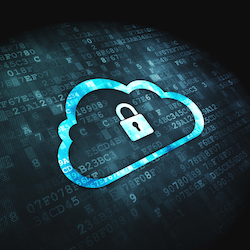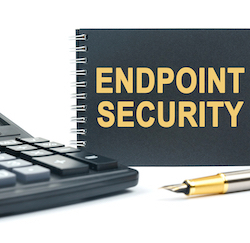Proactive Data: Blog

What is the Difference Between Endpoint Security and Network Security?
Data protection is a major concern for businesses all around the world. While storing information on a server or the cloud is convenient, it also makes it vulnerable.
When you’re looking for data protection in your business, you’ll probably notice two types of services are offered: network and endpoint security.
So, the question needs to be asked, is one better than the other?
Here’s the difference between the two in simple terms.
What is Network Security

Network security is generally what people think about when they hear cybersecurity. It’s technologies and processes that keep networks working as they should. More importantly, network security keeps your information safe.
Some of the ways it’s implemented include network access control and authentication. You can also assess the network vulnerability and monitor it. Network security is also proactive. It’s all about preventing anyone from accessing your network without permission.
An IT team is mostly in charge of developing and maintaining your network security, so there isn’t much needed from your employees.
What is Endpoint Security
Endpoint security, meanwhile, refers to any devices connected to your network. In other words, instead of focusing on network access security, you focus on the devices accessing the network.
In the past, network security was king because there weren’t many devices being used in businesses. At most, you’d see computers, telephones, and maybe even laptops when they started coming out.
Now, you can access the internet on tablets, phones, smart-TVs, and even watches.
In a 2020 security intelligence report by RiskIQ, cybercrime was found to cost the global economy $2.9 million every minute. Every endpoint connected to the internet faces as many as 1.5 attacks per minute.
There have also been major information hacks and leaks in recent years around the world. The United States government, in particular, has been concerned with cyberterrorism.
The first line of defense for endpoint security is educating your employees. Often when a device has been bypassed or hacked, it’s due to user error.

Typically, when a hack occurs it’s because a malicious link in an email was clicked, or a user used the same password on multiple platforms. Educating your employees about cybersecurity protocols can protect their information and your business.
Data Protection
Data protection requires the use of both network security and endpoint security in conjunction.
Cybersecurity providers will set up your systems for both types of data protection. They also typically provide educational workshops for your employees.
Some providers offer joint packages for security services, such as Proactive Data and Patching Solutions.
You not only get hardware and software solutions, but you also get monitoring software. With it, you can scan for threats, remote control your machines, and monitor devices.
Be Proactive
Even knowing the difference between endpoint security and network security, you’ll still need the help of an experienced IT professional.
A cybersecurity provider has access to the best software and skills to keep your information safe. They can also secure your email, cloud backups, and more.
Reach out to us today to speak with an IT professional at no charge or obligation.





